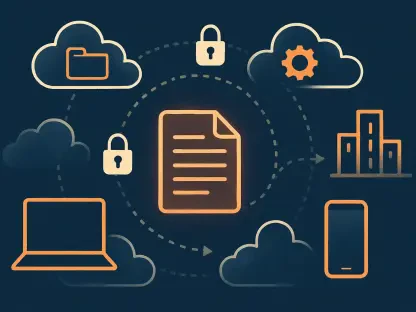In the evolving landscape of analytics, the skills that defined the career of a data scientist are undergoing a transformation. While data science has long been a sought-after field, boasting opportunities for transforming raw data into actionable insights, modern analytics careers are pushing the boundaries of what these skills entail. This shift is largely driven by companies’ increasing reliance on data-driven decision-making, requiring professionals to have a broader and more versatile skill set. Data, serving as the backbone of informed business strategies, demands a mix of technical prowess, business acumen, and ethical awareness. As such, the question arises: are traditional data science skills enough to truly excel in today’s analytics sector? This inquiry forms the crux of the current discussion, as the analytics environment expands to include diverse roles and responsibilities beyond the classic data scientist mold.
Expanding Beyond Traditional Data Science Roles
The field of analytics is no longer just about creating predictive models or mastering the intricacies of programming languages like Python or R. Effective involvement in this space now encompasses a range of tasks, including data interpretation, infrastructure management, and strategic communication of insights. These diverse roles extend well beyond the confines of algorithm design, indicating that successful professionals must look beyond traditional data science positions. For instance, data analysts, one of the key positions emerging, focus on using tools such as SQL, Excel, or Tableau to convert raw data into clear, understandable narratives that can answer specific business questions. Their work emphasizes data visualization and interpretation, skills that are crucial for understanding business impacts. Moreover, machine learning engineers, adept in deploying and maintaining machine learning models within production environments, represent another vital role. Their responsibilities necessitate proficiency in tools like TensorFlow and an understanding of DevOps pipelines, distinguishing them from typical data scientists.
Analytics engineers, who bridge the gap between data engineers and analysts, represent another growing career path. Responsible for developing scalable data models and pipelines, they ensure data is organized and clean for analysis. Proficiency in SQL and experience with cloud platforms like Snowflake or Google BigQuery are essential for these roles, underscoring the need for diverse technical expertise. These expanding opportunities imply that each role within the analytics ecosystem holds its own set of challenges and skill requirements. The responsibilities associated with these roles reflect a growing emphasis on storytelling and stakeholder communication—all vital for implementing data-driven strategies in today’s business landscape.
The Importance of Upskilling in Analytics
As the analytics sector continues to evolve, upskilling has become a critical element for career advancement. This process involves the active enhancement of technical capabilities, business insight, and familiarity with domain-specific tools. The modern landscape of analytics not only highlights the necessity for a solid technical foundation but also emphasizes the value of continuous learning. Aspiring professionals, whether they are entering the field or transitioning from other roles, can significantly benefit from platforms offering flexible educational opportunities. Online courses from providers like Coursera, edX, and DataCamp remain popular for acquiring certifications recognized by employers worldwide. Additionally, involvement in hands-on projects with real-world datasets on platforms like GitHub or Kaggle enables learners to apply their knowledge practically, an ability that employers highly value.
Besides technical skills, enhancing business fluency is also deemed indispensable. This includes understanding core business functions, metrics, and key performance indicators (KPIs) to offer valuable insights into business operations and inform data strategies. Mastery of these skills equips professionals to provide impactful insights that align with organizational goals. Moreover, acquiring domain-specific knowledge tailored to particular industry needs, such as pharmaceuticals or finance, can further improve a professional’s ability to make lending insights applied and relevant to the business context. Skills in domain-specific software like Salesforce or more advanced analytical tools also facilitate seamless integration into company systems, accelerating the contribution to insights and strategy formulation.
Emerging Roles in Data Ethics and Governance
As data security and privacy concerns rise, roles focusing on ethics and governance are gaining prominence within the analytics ecosystem. Data governance specialists, responsible for ensuring that data processes are compliant with current regulations, play a vital role in today’s data-centric organizations. These specialists set policies, manage data quality, and ensure compliance with regional or industry-specific legislation such as those regulating healthcare or finance. Their work often acts as the cornerstone for maintaining ethical data practices, which are foundational in building stakeholder and consumer trust. Ethical considerations in handling data are not just regulatory but essential for maintaining public trust and avoiding reputational risks.
Data governance roles blend technical skills and legal acumen, requiring collaboration between IT, compliance teams, and business units. These positions underscore how data professionals must develop a holistic understanding of both technology and business ethics to navigate complex regulatory environments effectively. As organizations increasingly rely on data to drive decisions, specialists who manage data ethics and governance are indispensable for safeguarding sensitive information. Already, ethical considerations are central in hiring decisions within analytics teams. Thus, professionals adept in this area offer much-needed assurance to enterprises venturing into data-enriched domains.
Crafting a Future-Proof Analytics Career
The field of analytics has evolved beyond merely crafting predictive models and mastering programming languages like Python or R. Today’s effective participation demands diverse skills, such as data interpretation, infrastructure management, and strategic communication of insights. These tasks go far beyond algorithm design, highlighting the need for professionals to explore roles outside traditional data science. For example, data analysts utilize SQL, Excel, or Tableau to transform raw data into meaningful narratives, answering specific business questions. Their emphasis on visualization and interpretation is crucial for grasping business impacts. Machine learning engineers, another key role, focus on deploying and maintaining models in production, requiring proficiency in tools like TensorFlow and an understanding of DevOps pipelines. Analytics engineers, bridging data engineers and analysts, develop scalable data models and pipelines, ensuring organized data for analysis. They need SQL expertise and knowledge of platforms like Snowflake or BigQuery. These expanding analytics roles underscore the importance of storytelling and stakeholder communication in today’s data-driven business strategies.









